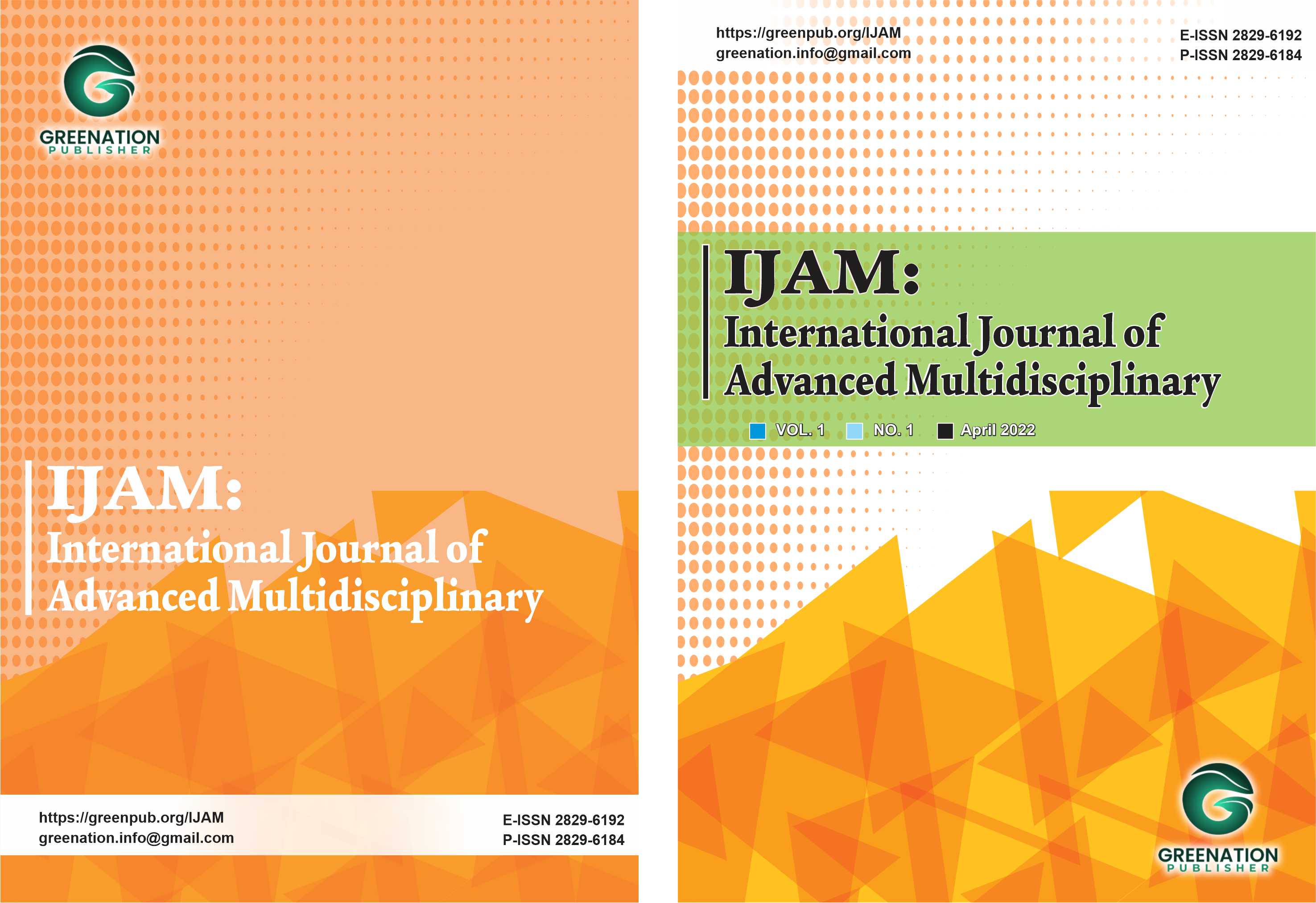The Urgency of Knowledge, Communication and Perception of Islamic Education Management Information Systems
DOI:
https://doi.org/10.38035/ijam.v1i4.162Keywords:
Management Information System, Knowledge, Communication and PerceptionAbstract
This paper aims to provide an understanding of the urgency of knowledge, communication and perceptions of Islamic education management information systems. The method used in this paper is (Library Research). The research results show that in facing globalization, the world of Islamic education in Indonesia must immediately improve itself to improve the education management information system to support the competitiveness of human resources produced by educational institutions. The information system that will be created must be balanced between the available technological infrastructure and the capabilities of its human resources so that there is no great discrepancy, therefore knowledge, communication and perceptions of Islamic education management information systems are very important to face the challenges of the globalization era.
References
Anwar Darwis, ”Implementation of Education Management Information Systems in the Learning Process” (Journal of Islamic Education Management Vol.2, No.1 April 2017)
Bimo Walgito, Introduction to General Psychology, (Yogyakarta: Andi Offset, 2004)
Cangara, Hafied, Introduction to Communication Studies. (Jakarta: PT. Raja Grafindo Persada, 2012).
E. Mulyasa, Becoming a Professional School Principal, (Bandung: Rosdakarya's Youth, 2006)
Efenddy, Onong Uchja, Science, Communication Theory and Practice. (Bandung: PT Juvenile Rosdakarya, 2007)
Eti Rochaety, et al, Education Management Information System, (Jakarta: Pt. Bumi Aksara, 2005)
Ety Rochaety, Et.Al, Education Management Information System, (Bandung: Pt Bumi Aksara, 2017)
Helmawati, Management Information System, (Bandung: Pt. Juvenile Rosdakaya, 2015)
Indra Tanra, Public Perceptions of Veiled Women, Journal of Sociological Education Equilibrium, Vol. III No. 1/May 2015
Kompri, Standardization of Principal Competency: Theoretical Approach to Professional Practice, (Jakarta: Kencana, 2017)
La Ode Ismail, Risnani Sinen, "Application of Education Management Information Systems in the Learning Process at SMP Negeri 21 Makassar", Idaarah Journal, Vol. I, No. 2, 2017.
Lantip D. Prasojo, Education Management Information System, (Yogyakarta: Uny Press, 2013).
Lukman Ahmad and Munawir, Management Information Systems, (Banda Aceh: Our Institute, 2018)
Mizanul Hasanah, "The Importance of Management Information Systems for the Development of Islamic Education", Islamic Management: Journal of Islamic Education Management. Vol. 1, No.1
Notoatmodjo, Soekidjo, Basic Principles of Public Health. (Jakarta: Rineka Cipta, 2010)
Nur Rahmi Sonia, "Implementation of Education Management Information Systems (Simdik) in Improving the Quality of Education at Madrasah Aliyah Negeri 2 Ponorogo", Southeast Asian Journal of Islamic , Vo.1, No.1, 2022.
Ria Eliza Wati, "Implementation of Management Information Systems at the Muhammadiyah Tsanawiyah Madrasah Sukarame Bandar Lampung", Thesis, November: 2018.
Rohmaul Listyana and Yudi Hartono, Community Perceptions and Attitudes towards the Javanese Calendar in Determining the Time of Marriage (Case Study of Jonggrang Village, West District, Magetan Regency, 2013)”, Agastya Journal, Vol. 5, No. 1/January 2015.
Rusdiana, Moch. Irfan, Management Information Systems, (Bandung: Faithful Library, 2014)
Siti Hajar Loilatu, "Implementation of Education Management Information Systems in the Learning Process", JURNAL BASICEDU Research & Learning in Elementary Education, Vol. 4, No. 4. 2020
The Editorial Team of the Big Indonesian Dictionary, Big Indonesian Dictionary, (Jakarta: Balai Pustaka, 2003)
Wulan Asrofi Buntoro, "Utilization of E Learning Quipper School by Teachers and Students to Optimize Learning at MAN 1 Ponorogo", UGM Journal, Vol. 3, No. 2018
Yulia Djahir, Dewi Pratita, Teaching Materials: Management Information Systems, (Yogyakarta: Deepublish, 2014)
Downloads
Published
How to Cite
Issue
Section
License
Authors who publish their manuscripts in this journal agree to the following conditions:
- The copyright on each article belongs to the author(s).
- The author acknowledges that the International Journal of Advanced Multidisciplinary (IJAM) has the right to be the first to publish with a Creative Commons Attribution 4.0 International license (Attribution 4.0 International (CC BY 4.0).
- Authors can submit articles separately, arrange for the non-exclusive distribution of manuscripts that have been published in this journal into other versions (e.g., sent to the author's institutional repository, publication into books, etc.), by acknowledging that the manuscript has been published for the first time in the International Journal of Advanced Multidisciplinary (IJAM).






















